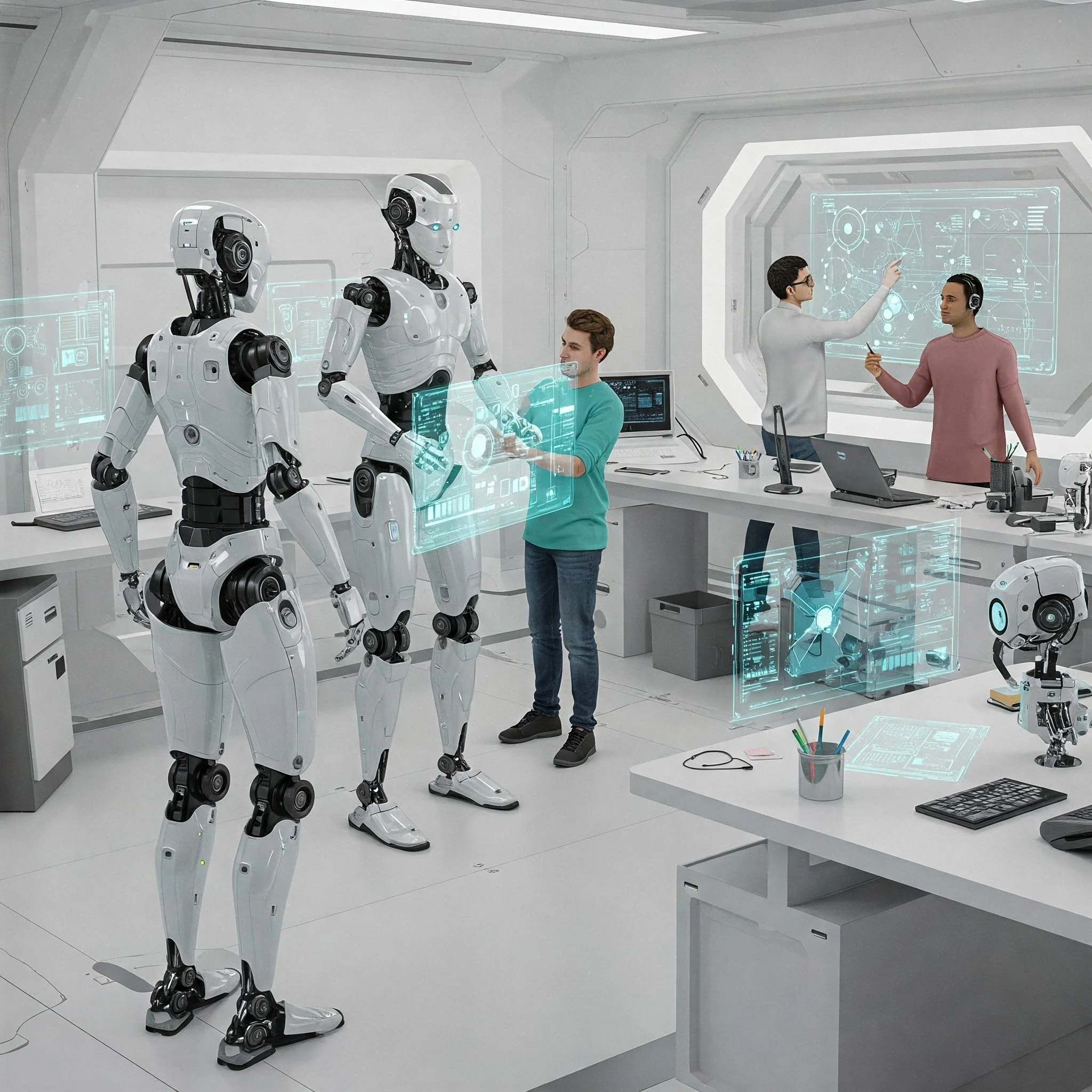The Future of Work: How AI is Reshaping Industries and Job Roles
Artificial intelligence (AI) is rapidly transforming the world around us, and the workplace is no exception. As AI technologies continue to evolve, they are poised to have a profound impact on the future of work. In this blog post, we will explore how AI is reshaping industries and job roles, and discuss the skills that will be required to succeed in the future of work.
The Impact of AI on Employment
One of the most pressing questions about the future of work is how AI will impact employment. Some experts believe that AI will lead to widespread job losses, as machines are able to automate many tasks that are currently performed by humans. However, others believe that AI will create new jobs and opportunities.
The truth is that the impact of AI on employment is likely to be complex and nuanced. It is possible that AI will lead to some job losses, but it is also likely that AI will create new jobs and opportunities. For example, AI is already being used to create new jobs in the fields of data science, machine learning, and AI engineering.
In addition to creating new jobs, AI is also being used to automate tasks that are currently performed by humans. This can free up workers to focus on more strategic and creative tasks. For example, AI is being used to automate tasks such as data entry, customer service, and even some types of legal research.
The Skills Required for the Future of Work
As AI continues to transform the workplace, it is important for workers to develop the skills that will be needed to succeed in the future of work. Some of the most important skills include:
Technical skills: Workers will need to be able to use AI-powered tools and technologies. This includes skills such as data analysis, machine learning, and coding.
Critical thinking and problem-solving skills: Workers will need to be able to think critically and solve complex problems. This is because AI will be able to automate many routine tasks, so workers will need to be able to focus on more strategic and creative tasks.
Creativity and innovation: Workers will need to be able to come up with new ideas and solutions. This is because AI will be able to automate many routine tasks, so workers will need to be able to focus on more strategic and creative tasks.
Adaptability and lifelong learning: Workers will need to be able to adapt to new technologies and learn new skills throughout their careers. This is because the workplace is constantly changing, and workers will need to be able to keep up with the latest trends.
AI is having a profound impact on the future of work. While it is possible that AI will lead to some job losses, it is also likely that AI will create new jobs and opportunities. In order to succeed in the future of work, workers will need to develop the skills that are in demand, such as technical skills, critical thinking and problem-solving skills, creativity and innovation, and adaptability and lifelong learning.

